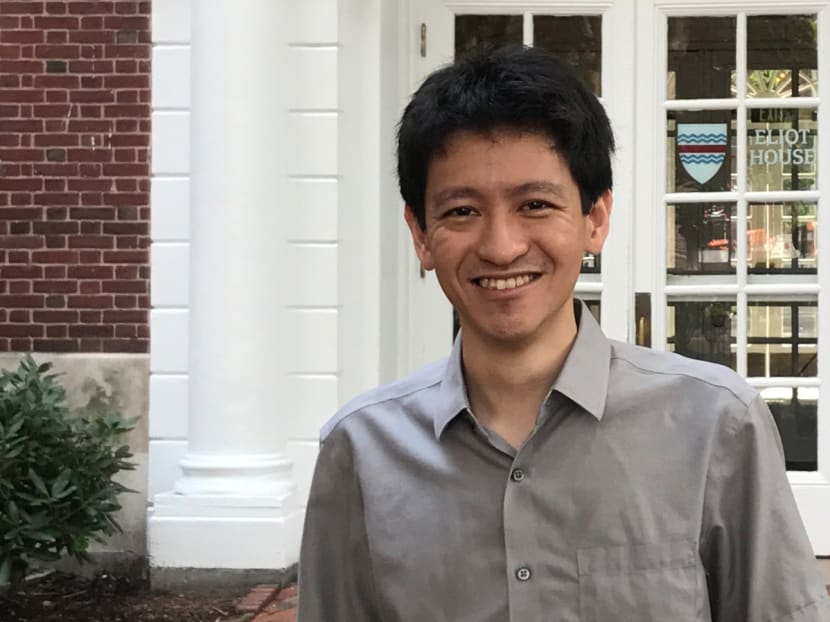Li Shengwu’s contempt of court case to proceed as apex court dismisses appeal
SINGAPORE — The contempt of court case involving Prime Minister Lee Hsien Loong’s nephew, Mr Li Shengwu, will proceed as the apex court on Monday (April 1) dismissed his appeal which concerns the way the Attorney-General’s Chambers (AGC) had served him court papers outside of Singapore.

One key issue argued in the Apex court was whether the Attorney-General’s Chambers can rely on a new law on contempt even though Mr Li’s alleged contempt of court offence was committed before that law was introduced.
SINGAPORE — The contempt of court case involving Prime Minister Lee Hsien Loong’s nephew, Mr Li Shengwu, will proceed as the apex court on Monday (April 1) dismissed his appeal which concerns the way the Attorney-General’s Chambers (AGC) had served him court papers outside of Singapore.
In a written judgement that was released on Monday, Judge of Appeal Steven Chong — who heard the case along with Chief Justice Sundaresh Menon and Judge of Appeal Tay Yong Kwang — said that AGC had “properly” served him the papers at his workplace in the United States in 2017.
AGC’s methods complied with a provision in the Rules of Court, which allows for papers to be served out of Singapore in cases where a claim is made under any written law, he pointed out.
In Mr Li’s case, the judge recognised that AGC is claiming Section 7(1) of the Supreme Court of Judicature Act, which stated that the High Court and the Court of Appeal “shall have power to punish for contempt of court”, over a Facebook post he made on July 15 in 2017.
“Without expressing any concluded view on the merits, it is suffice to say that at this stage the AG (Attorney-General) appears to have made out a good arguable case against the appellant for contempt,” the judge added.
In the Facebook post, which Mr Li claimed was shared only with friends, the 34-year-old Assistant Professor of Economics at Harvard University who is the eldest son of PM Lee’s younger brother, Mr Lee Hsien Yang, wrote that the Singapore Government was “very litigious” and has a “pliant court system”.
He was commenting on the dispute between his father and aunt Lee Wei Ling and his uncle over the fate of the home of his grandfather, the late Mr Lee Kuan Yew, at 38 Oxley Road.
The AGC called the post an “egregious and baseless attack” on the judiciary and started contempt of court proceedings in August that year. But the case dragged on as Mr Li’s lawyers, Mr Abraham Vergis and Ms Asiyah Arif from Providence Law Asia, argued that the AGC cannot personally serve him papers outside of Singapore.
The court will next hear substantive arguments on whether Mr Li had indeed committed contempt.
LI DISAPPOINTED, SAYS AGC ‘STILL NEED TO PROVE’ CONTEMPT
Mr Li expressed his disappointment over Monday’s decision in a Facebook post, but remarked: “The AG will still need to prove beyond reasonable doubt that my private Facebook post somehow scandalised Singapore’s judiciary.”
Calling the case brought against him “a surreal mess” that stretched one year and eight months, Mr Li added: “One wonders how much state resources have been spent going after myself and my mother?
“As far as I can tell, my uncle, Lee Hsien Loong, seems quite happy with the situation, even though it reminds everyone of his shameful conduct over 38 Oxley Road.”
Mr Li’s mother, lawyer Lee Suet Fern, is being accused of possible professional misconduct by AGC over her handling of Mr Lee Kuan Yew’s last will.
Mr Li, meanwhile, pointed out that the Attorney-General’s attempts to retroactively apply new rules were not successful before the apex court.
The coram of three judges ruled that it would be “unfair” to retrospectively apply a procedural rule, which was introduced in October 2017 to specifically allow court papers for contempt of court to be served outside Singapore.
Judge of Appeal Chong wrote: “To find that limb (under Order 11 of the Rules of Court) applies retrospectively would be to open the appellant to a liability for which he was not previously liable.
“We consider that this constitutes unfairness, particularly in light of the penal consequences that may follow upon a finding of contempt.”
While Mr Li was ordered to pay costs, which were understood to be about S$6,000, when the High Court dismissed his application in March last year, he does not need to pay costs for this appeal.
That was because “the (Attorney-General) did not succeed on a number of points and raised several new but unnecessary points on appeal”, said Judge of Appeal Chong.
Following the decision, AGC issued a statement, saying that it had “always taken a strict view” of contempt of court and prosecuted individuals “when they are egregious”.
“This approach dates from Singapore’s independence,” it added. “Protecting the courts from contempt has been one of the guiding principles of the Rule of Law in Singapore.”











